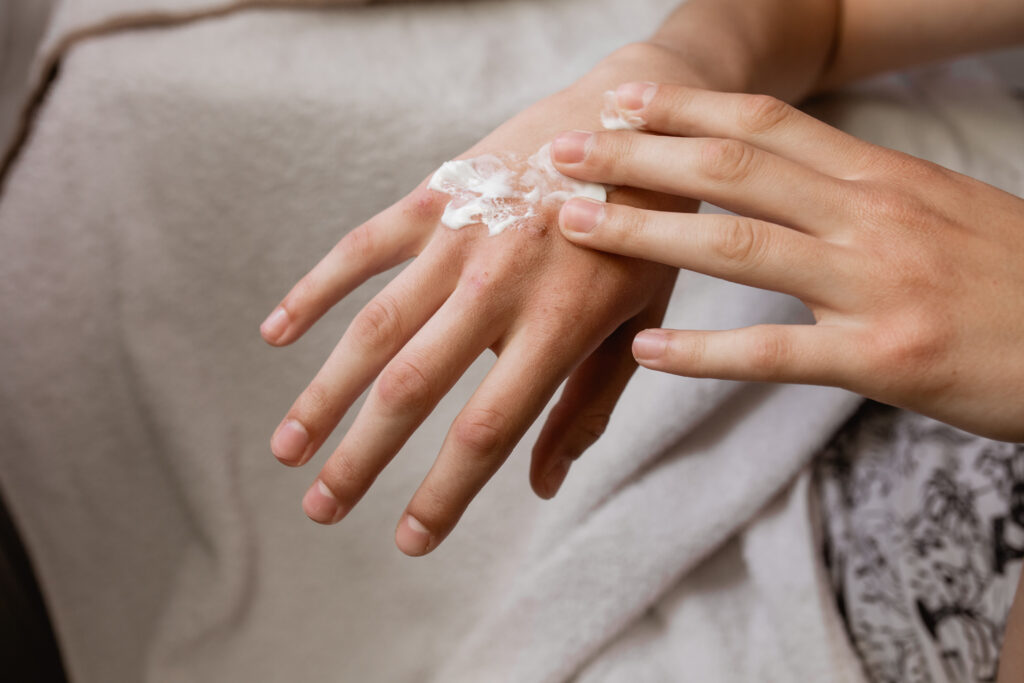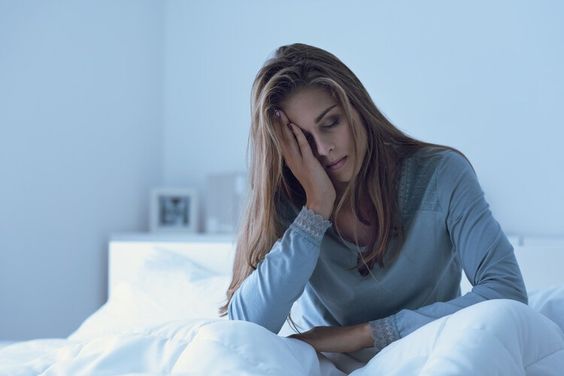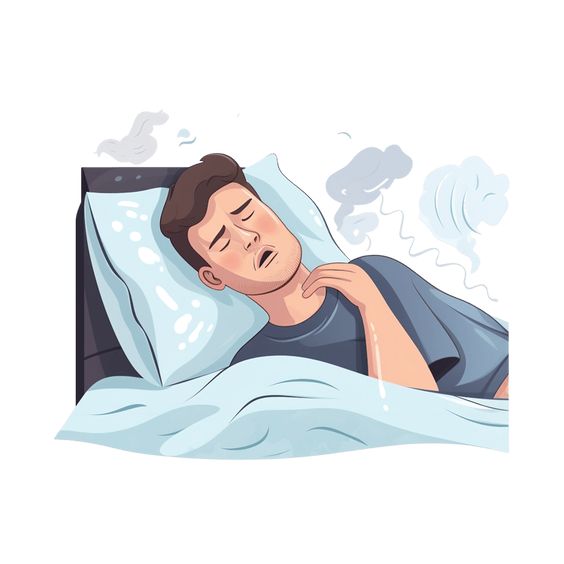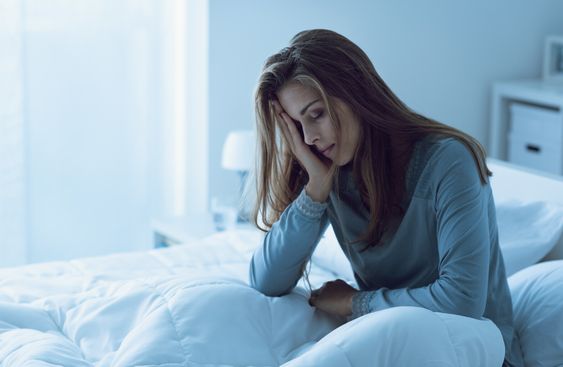
An estimated 30% of the U.S. population has some form of eczema. It’s a condition that affects people of all ages, genders, and ethnicities and can flare up when you least expect it. Eczema, or atopic dermatitis, is an inflammatory condition that can cause your skin to feel itchy, very dry, and bumpy. Although there is no single cure for eczema, you can manage the symptoms by knowing what triggers them.
For most people, eczema begins during childhood and continues into adulthood, though adults who didn’t have the condition as children can still get it, and some children can outgrow it. The condition weakens your skin’s barrier function, which is what helps your skin stay hydrated and protects it from outside elements.
Although the most common type of eczema is atopic dermatitis, other types present with different symptoms and have different causes. If you know what type of eczema you have and what treatment options are available to help with symptoms, you will likely have an easier time managing the condition.
Do You Have It? Recognizing the Symptoms of Eczema
Depending on your age, your symptoms can vary. Mild symptoms are more common than severe ones, with the most common atopic dermatitis symptoms being:
- Skin flushing
- Dry, scaly skin
- Crusted, open, or weeping sores
- Itching
In people of color, it’s important to note that eczema can appear brown or gray, so the patches of irritated skin may be more difficult to see.
Symptoms of eczema in adults and children can fluctuate, becoming more or less severe over time. Patches of eczema can become scaly and rough. It’s not uncommon to get skin infections because of constant scratching.
Are You at Risk? Causes of Eczema
Although the cause of eczema isn’t clear yet, some factors can influence whether you develop it or not.
If you have close relatives with the condition, you’re more likely to develop it. Environmental factors also play a huge role, as certain irritants and allergens can trigger the condition. Some of these include:
- Detergents
- Shampoos
- Fresh fruit juices
- Pollen
- Pet dander
- Mold
For some people, very cold or hot temperatures can also trigger symptoms, as can sweating and high and low humidity levels.
Stress is not a direct cause of eczema, but it can make flare-ups worse and more frequent.
In women, hormonal changes, especially during pregnancy, can also aggravate symptoms.
Types of Eczema: Knowing the Difference Between Them
Aside from atopic dermatitis, there are several other forms of eczema.
Allergic contact dermatitis begins when your skin comes into contact with an allergen that your immune system recognizes as foreign.
Dyshidrotic eczema is unique in that it causes blisters and affects the palms of your hands and soles of your feet, while neurodermatitis causes scaly patches of skin on your head, wrists, forehead, and lower legs. Usually, neurodermatitis begins in reaction to a localized itch.
Another type of eczema is stasis dermatitis, which may have links to circulatory problems and leads to irritation in the lower legs.
Finally, discoid (nummular) eczema shows up as circular patches that can be itchy, crusty, or even scaly.
Treating and Preventing Eczema Symptoms
Researchers are still working on a cure for eczema, but you can take steps to manage symptoms and prevent flare-ups.
Many medications offer relief, including topical corticosteroid creams that provide anti-inflammatory results. Your doctor may prescribe oral medications like immunosuppressants if topical options aren’t helpful.
One concern many people have is nighttime itching. Taking an antihistamine may help you sleep and break the cycle of scratching and further itching.
Biologic drugs can also help, especially for more severe types of eczema. These drugs block proteins in your immune system, making it less reactive to triggers. For moderate to severe eczema, your doctor will likely turn to topical and oral medications as well as biologic drugs.
Home care options can prevent eczema symptoms, too. These include:
- Using mild soap
- Applying moisturizer right after bathing
- Wearing soft fabrics
- Using a humidifier in cold and dry weather
- Avoiding rapid temperature changes
Staying hydrated at all times is good for your skin health, so drink a lot of water. It is also vital that you learn what your triggers are so that you can avoid them as much as possible.
Avoiding the Itchiness and Discomfort
By knowing the type of eczema you have and what can trigger it, you can focus on how you manage the condition. You can live a happy and healthy life with clearer skin by speaking to your doctor and taking a few precautions.
Resource Links
- “Eczema (Atopic Dermatitis)” via National Institute of Allergy and Infectious Diseases
- “Allergic Contact Dermatitis” via National Library of Medicine
- “Eczema Types: Dyshidrotic Eczema Overview” via American Academy of Dermatology Association
- “Neurodermatitis: What Is It?” via National Library of Medicine
- “Eczema Types: Stasis Dermatitis Overview” via American Academy of Dermatology Association
- “Eczema Types: Nummular Eczema Overview” via American Academy of Dermatology Association






